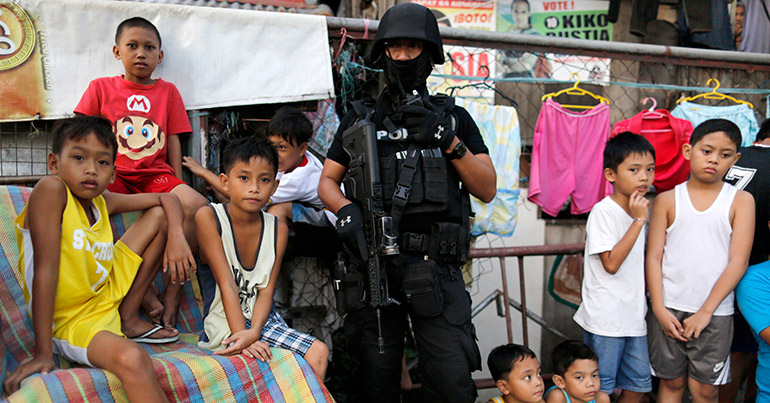
Lowering the minimum age of criminal responsibility to as young as nine in the Philippines would do little to deter drug traffickers from using children in criminal operations, human rights activists have said.
A bill currently making its way through the Philippine House of Representatives would reverse the 2006 Juvenile Justice and Welfare Act that raised the age of criminality from nine to 15. Supporters of the change argue that those involved in the drug trade often employ children younger than 15 to avoid prosecution.
Shay Cullen, president and CEO of Philippines-based social development organisation People’s Recovery Empowerment and Development Assistance Foundation, said the proposal would not stop drug dealers from taking advantage of children.
“Lowering the age of criminal liability will not stop adults from abusing and exploiting children and teenagers,” he said. “Of course not. The law ought to be focused on going after the adult criminals who are using the children.
“The best way is to save the children with the help of social workers by bringing them to rehab and protected shelters,” he said. “[T]hey can give testimony against those who used them… and the adults can be tried and convicted for child abuse and exploitation.”
The bill, titled “Minimum Age of Criminal Responsibility Act,” was introduced in June alongside an explanatory note from several members of the House of Representatives explaining the impetus for amending the 2006 act.
“While the intent of protection of the Filipino youth may be highly laudable, its effects have had the opposite effects – the pampering of youthful offenders who commit crimes knowing they can get away with it,” the note read.
During the presidential election campaign earlier this year, Philippine President Rodrigo Duterte said the minimum age of criminal responsibility should be lowered to 12, on par with the worldwide median.
“[I]n many cases, drug traffickers use minors as couriers, a modus operandi made rather convenient by the law. Often times, these guys just go scot-free and grow up with no sense of accountability. It’s time to bring back order and keep our kids off the streets as we wage an all-out war against organized crime,” Duterte said in a statement in February.
The bill has been met by fierce pushback by politicians and human rights advocates across the Philippines. Social welfare secretary Judy Taguiwalo, the Commission on Human Rights, and child rights advocates have all voiced their objection to the bill.

